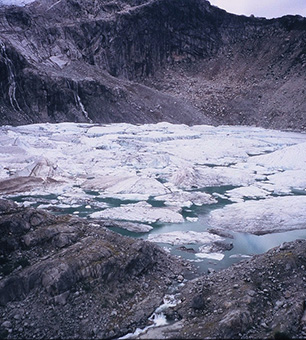Did you know that Truthout is a nonprofit and independently funded by readers like you? If you value what we do, please support our work with a donation.
For years, scientists have been warning us that if we don’t do something quick, global warming will change our planet forever. Now we have a date for when that permanent change will happen, and it’s a lot sooner than you’d think.
The zero hour for global temperatures is 2047, 34 years from now. At that point, say the authors of a new study published in Nature, climate-change will “lock” into place. Once that happens, every year after 2047 will be hotter than even the current hottest year on record.
By 2047, the study concludes, our current record temperatures will become the new normal temperatures.
In some places, the zero hour for global warming will come even sooner than the 2047 date. The authors of the Nature study estimate that Singapore, for example, will reach its temperature point-of-no-return as soon as 2028. Cairo, they say, could start to see a “lock-in” of global warming in 2036, 11 years before the global “H-hour” of 2047.
According to Chris Field, one of the scientists who worked on the project, “One can think of this year [2047] as a kind of threshold into a hot new world from which one never goes back.”
The reason Field and his co-workers were able to make these specific calculations is actually quite simple – and scary: humans are expected to keep burning fossil fuels and pumping C02 into the atmosphere at a rapid rate well into the coming decades.
With this in mind, all the researchers needed to do was plug into their formula a few other pieces of data about, for example, weather patterns in different parts of the globe, and “voila!,” they found their zero hour date for climate change: 2047.
If you think the planet is screwed up now, just wait for what you’ll see once the “new normal” arrives in 2047. Savage storms, deadly droughts, torrential flooding – all of these disasters will both be more common and more powerful than they are right now. Millions of refugees will have to flee from rising sea levels and governments around the world will have to find a way to both pay for their own displaced populations as well as the damage caused by an increasingly violent climate.
Of course, this doesn’t have to happen. The scientists who worked on the Nature study estimated that if we cut our CO2 emissions by just a little bit, we can put off that 2047 zero hour by 22 years to 2069. That’s still only 56 years away, but it is a sign that we might be able to avoid permanent damage to the planet if we push for renewable energy right now. If that’s the case, we can avoid passing the climate threshold.
Or can we? One thing the Nature study didn’t talk about is the “E” word: extinction. There have been five major mass extinctions in the history of this planet and all of them have been caused by global warming.
The worst, the Permian Mass Extinction, wiped out over 95 percent of all life on the Earth in the seas, and, according to the most up-to-date scientific research, was caused by a massive release of greenhouse gases into the atmosphere from a giant volcanic eruption. This provoked global warming intense enough to melt billions of tons of frozen methane on the oceans’ floors. That pulse of methane, an intense greenhouse gas, then brought the extinction to its peak.
While in the past it took continental movement or an asteroid to break up the crust of the Earth and release the greenhouse gases needed to start something like the Permian Mass Extinction, today our addiction to fossil fuels is rapidly pushing us towards a similar global tipping point.
Over 2 trillion tons of methane – a greenhouse gas 70 times more potent than carbon dioxide – are sitting right now, frozen, in the polar regions. If we keep warming the climate with carbon dioxide from coal-fired power plants or even so-called “clean” natural gas, we’re going to warm that methane to the point that it melts and turns into a gas, which will push us to that “threshold” a lot sooner than we’re prepared for.
And once we reach that threshold, that global tipping point, there is no going back. The Earth’s sixth mass extinction will begin.
Now is the time to make the transition to clean, renewable energy. The future of the planet and the human species depend on it. If global warming continues on the same rapid path, we won’t just have to worry about hotter temperatures after 2047 or violent weather patterns, we’ll have to worry about going the way of the dinosaurs.
This is why we’ve produced a short documentary on this topic – and a short e-book titled “The Last Hours of Humanity: Warming the World to Extinction” that you can find at www.lasthours.org.
Please check it out and share it with as many friends as possible.
The future of humanity is at stake.
Media that fights fascism
Truthout is funded almost entirely by readers — that’s why we can speak truth to power and cut against the mainstream narrative. But independent journalists at Truthout face mounting political repression under Trump.
We rely on your support to survive McCarthyist censorship. Please make a tax-deductible one-time or monthly donation.
